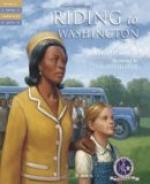It would be absurd to close this sketch of Moorman’s professional activities without a reference, however slight, to what was, after all, one of the most significant things about them. No man can, in the full sense, be a teacher unless, in some way or other, he throws himself into the life and interests of his students. And it was among the secrets—perhaps the chief secret—of Moorman’s influence as a teacher that, so far from being mere names in a register, his students were to him always young people of flesh and blood, in whose interests he could share, whose companion he delighted to be, and who felt that they could turn to him for advice and sympathy as often as they were in need. No doubt his own youthfulness of temper, the almost boyish spirits which seldom or never flagged in him, helped greatly to this result; but the true fountain of it all lay in his ingrained unselfishness. The same power was to make itself felt among the classes for older students which he held in the last years of his life.
To fulfil all these academical duties in the liberal spirit, which was the only spirit possible to Moorman, might well have been expected to exhaust the energies of any man. Yet, amidst them all, he found time to take part, both as lecturer and as trusted adviser, in the activities of the Workers’ Educational Association, attending summer meetings and, during the last five or six winters of his life, delivering weekly lectures and taking part in the ensuing discussions, at Crossgates, one of the outlying suburbs of Leeds. To the students who there, year by year, gathered round him he greatly endeared himself by his power of understanding their difficulties and of presenting great poetry in a way that came home to their experience and imagination. His growing sympathy with the life of homestead and cottage made this a work increasingly congenial to him; and, as a lecturer, he was perhaps never so happy, in all senses of the word, as when, released from the “idols of the lecture-room,” he was seeking to awake, or keep alive, in others that love of imaginative beauty which counted for so much in his own life and in his discharge of the daily tasks that fell upon him: speaking freely and from his heart to men and women more or less of his own age and his own aspirations; “mingling leadership and camaraderie in the happy union so characteristic of him,” and “drawing out the best endeavours of his pupils by his modest, quietly effective methods of teaching and, above all, by his great, quiet, human love for each and all."(5)
It is clear that such work, however delightful to him, meant a considerable call upon his time and strength: the more so as it went hand in hand with constant labours on behalf of the Yorkshire Dialect Society, for which he was the most indefatigable of travellers—cycling his way into dale after dale in search of “records”—and of which, on the death of his friend, Mr Philip Unwin, he eventually became president. Nor was this all. During the last seven years or so of his life the creative impulse, the need of embodying his own life and the lives of those around him in imaginative form was constantly growing upon him, and a wholly new horizon was opening before him.




